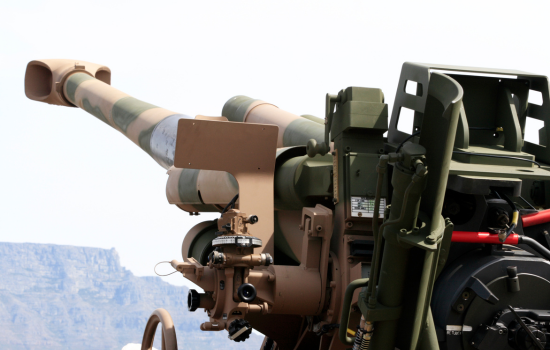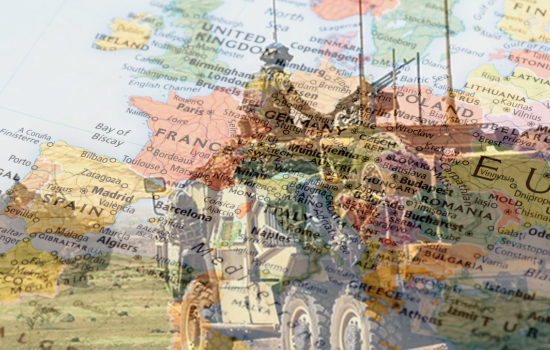The Houthi Threat to Israel and its Regional and Global Consequences
First published as an op-ed in the Israeli daily Maariv.
To understand the threat of the Houthis to Israel since the outbreak of the war against Hamas in Gaza and its regional consequences, it is necessary to understand the unique nature of the organization and the policies of the American administrations and their allies in the region.
The Houthis can be defined as Hezbollah B’, full members of the “axis of resistance” led by Iran. General Hossein Salami of the Iranian Revolutionary Guards said that “Ansarullah [Ansar Allah – the Houthi movement] is a copy of [Lebanese] Hezbollah in a strategic area.”
Their religious leader is the Zaydi Mufti Shams al-Din Sharaf al-Din, who was educated in Iran and is an important link to the Shia religious leadership in Tehran. The slogan on their flag is “Death to the United States, death to Israel, God’s curse on the Jews”, taken from Ayatollah Khamenei, the supreme leader of Iran.
Their political leader, Abdel-Malek Al-Houthi, admires Hezbollah leader Hassan Nasrallah and tries to imitate his style and even his speech. The Houthis were trained by Hezbollah in Yemen and Lebanon. Their military power, especially the missile weapons and UAVs, was provided by Iran.
The American administration had an ambivalent position towards the organization. President Trump did indeed support the war that Saudi Arabia waged against the Houthis since 2015 to restore Sunni President Mansour Hadi to power in Yemen, but when the Houthis fired missiles that severely damaged the Saudi oil facilities in September 2019, the Trump administration did not react at all.
Trump decided to put the Houthis on the list of terrorist organizations only on January 19, 2020, a day before President Biden replaced him. President Biden was quick to remove the Houthis from the list. In this way, in my opinion, the American administration underestimated the transformation of the Houthi movement into an active companion in Iran’s “axis of resistance.”
The US helped Israel defend itself against the threat of long-range missiles and drones launched by the Houthis towards Eilat and southern Israel by shooting them down from its warships sailing in the Red Sea or from bases in Saudi Arabia. But this, like the rhetorical Israeli threats against the Houthis, did not deter their leadership.
Although the Houthis initially announced their desire to act against “Israeli ships” only, in practice, they attacked “every ship that made its way to Israel,” even if not related to Israel. As more and more merchant ships were hit by missile fire, the situation became a direct threat to international maritime traffic and global economic activity.
The Houthi leadership may have been pushed into this aggressive strategy by Tehran to replace or supplement Hezbollah’s threat to Israel, which has not been fully implemented. But it is also possible that the leader, Abdel-Malek al-Houthi, gained self-confidence, fell in love with the position of power he discovered he had, and sees himself as someone who can influence regional moves against Israel, which is fighting Hamas in Gaza, and against its allies.
The resulting dangerous situation compels the United States, which until recently tried to minimize the danger of a regional war, to make a political and military effort to coordinate with Great Britain, France, Japan, and other states the establishment of an international naval force that would ensure free navigation in the Red Sea and the Straits.
The United States and the coalition must now decide whether to continue with a policy of containment and defense or an aggressive attack against strategic targets in Houthi territory.
In the meantime, there are opposing positions from two of its important allies, that are directly threatened by the Houthis. Saudi Arabia, which fears possible damage from missiles fired at its oil fields and facilities; and the Emirates, which has a presence in Yemen in coalition with separatist elements in the south of the country, which prefers a more aggressive policy to challenge the Houthis.
The position of Egypt, an important actor in the Red Sea region with a large military fleet, which suffers from the negative impact on its revenues from the Suez Canal, is not clear yet.
Israel prefers that an international coalition, led by the Americans, deals with the Houthi naval threat. In the opinion of the writer of these lines, Israel must not remain passive and give up its role as a protector of the country’s freedom of navigation in the Red Sea and the Straits after a similar situation forced it to start two wars in the past, the Sinai War in 1956 and the Six Days War in 1967.
Deterring the Houthis through vigorous military means can strengthen deterrence against Hezbollah, against the pro-Iranian Shiite groups in Syria and Iraq, and also against Iran itself, which has made the use of proxies the central tool in its regional hegemonic strategy.
This is also an opportunity for Israel to strengthen strategic and military relations with Saudi Arabia, Egypt, and the Emirates.






